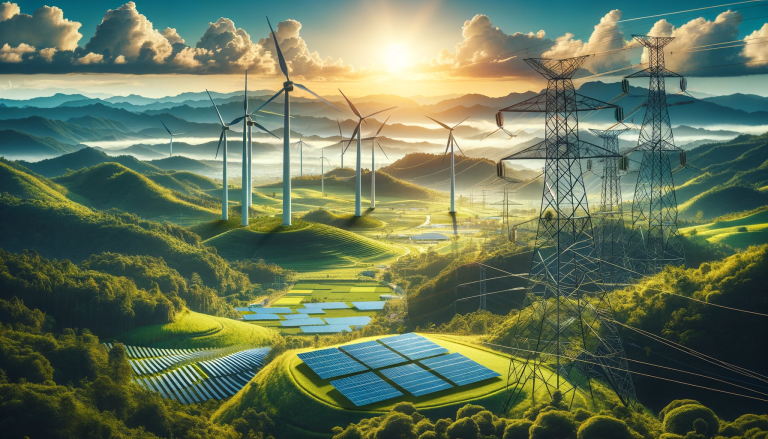Green energy marks a pivotal shift in Indonesia’s long-term strategy for sustainable development. The nation has laid out an ambitious plan aimed at transforming its energy sector by 2030. This roadmap outlines a comprehensive approach to reduce reliance on fossil fuels, promote renewable sources, and enhance energy efficiency across various industries. With growing environmental concerns and increasing global pressure to combat climate change, Indonesia’s commitment highlights its dedication to balancing economic growth with ecological responsibility. As this transition unfolds, the government and private sectors are collaborating to accelerate innovation and infrastructure development that supports cleaner energy solutions.
Strategic Milestones in Indonesia’s Energy Transition
Indonesia’s roadmap targets a substantial increase in renewable energy contributions within the next decade. This ambitious agenda includes expanding solar, wind, hydro, and geothermal power generation capacities. By focusing on these diverse resources, the country aims to ensure a more resilient and diversified energy supply. Moreover, the strategy emphasizes regulatory reforms that simplify project approvals and encourage investments. These changes create an environment favorable for both local and international players to participate actively in energy projects. Consequently, the energy landscape is expected to witness rapid growth, supported by government incentives and partnerships.
Furthermore, the roadmap prioritizes enhancing grid infrastructure to integrate renewable energy efficiently. Efforts to modernize the electrical system will improve stability and reduce transmission losses. Additionally, promoting energy conservation practices and adopting advanced technologies play a crucial role in meeting the country’s sustainability goals. As a result, these combined actions contribute to lowering greenhouse gas emissions while stimulating economic opportunities within the green energy sector.
Financial Incentives and International Cooperation Boosting the Plan
Indonesia’s success relies heavily on securing sufficient funding and international cooperation. The roadmap outlines various financial mechanisms designed to attract investments in clean energy projects. These include subsidies, tax breaks, and guarantees aimed at reducing risks for investors. Moreover, the government actively seeks partnerships with global organizations and foreign governments to exchange knowledge and technology. Such collaborations facilitate access to cutting-edge innovations and best practices, accelerating progress.
Notably, the plan also addresses social aspects by encouraging community involvement and job creation in emerging industries. Training programs aim to equip the workforce with necessary skills for green energy jobs, fostering inclusive economic growth. Ultimately, this holistic approach enhances Indonesia’s ability to meet its climate commitments and improve the quality of life for its citizens.
In conclusion, Indonesia’s green energy roadmap outlines a clear and comprehensive path toward a sustainable future. Through strategic milestones, financial incentives, and international cooperation, the country prepares to transform its energy sector fundamentally. This transition not only supports global environmental goals but also promotes economic development and energy security for Indonesia in the years ahead.
